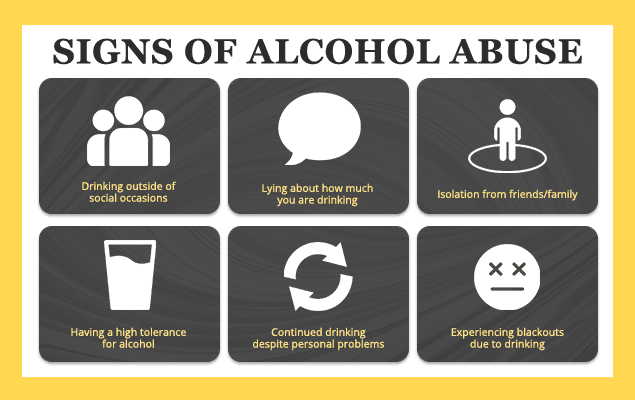Alcohol Use Disorder (AUD) is a chronic disease characterized by a person who is unable to stop drinking, regardless of the negative side effects. When someone suffers from alcoholism, they become both physically and mentally dependent on alcohol to function. Alcoholism is a leading cause of addiction and health issues across the world. Over 88,000 (1 in 8) alcohol-related deaths are recorded yearly in the United States alone.
If you break that down, it means 12.7% of the population suffers from alcoholism. Our drug and alcoholism treatment in Florida is available to help you or a loved one recover from substance abuse and co-occurring disorders.
Table of Contents
What Is Alcohol Addiction?

Alcoholism is a serious chronic disease that people seek treatment for in Florida daily. While moderate drinking may not be a problem for many people, it can lead to binge drinking and substance abuse over time.
Drinking regularly creates a mental and physical alcohol dependence on the regular maintenance of mood, hormones, and organ function. Since alcohol is a depressant that slows down the nervous system, when you stop drinking, your body can get false signals to your brain saying you need more alcohol to calm the nervous system back down again.
Alcohol is especially prominent because the substance is legal. There are so many cases where someone drinks casually, eventually leading to addiction from overexposure to the substance. Many factors can cause an increased likelihood of developing this condition, but in many cases, it just happens gradually. It’s a body response, and this is why alcoholism is understood as being a disease.
Some other factors that may increase the likelihood of developing an alcohol use disorder include:
- Co-occurring Disorders
- Genetic factors
- High levels of stress
- Exposure to alcohol at a young age
- Environmental factors
- Family history of addiction
- Childhood trauma
Characteristics Of Alcohol Use Disorder
Unfortunately, since alcohol consumption is widely accepted, many people don’t know they or someone they love are suffering from a substance abuse disorder. Heavy drinking, formally known as “Binge Drinking,” is a classified form of alcohol use disorder. Since drinking is typical social behavior, it’s commonly confused with partying or “normal” behavior.
There can be a fine line between drinking moderately and drinking excessively. According to the Center for Disease Control and Prevention (CDC), alcohol use disorder is defined as binge drinking (drinking five or more drinks on an occasion for men or four or more drinks on an occasion for women) or heavy drinking (drinking 15 or more drinks per week for men or eight or more drinks for women).
Alcohol’s Effect On The Body
As soon as alcohol is ingested, it begins to circulate throughout the entire bloodstream. Alcohol will stay in the bloodstream until the liver can completely break it down, which takes, on average, a full hour per standard-sized drink. That’s why binge drinking affects men and women differently. The tolerance of how much someone can drink and how long it takes to absorb in their system is unique for everyone.

In one to ten minutes, the brain and other organs will start to feel the effects of drug and alcohol consumption. Signals to the brain and overall functioning will be impaired, breathing will slow, and kidneys begin to work extra hard to keep up with the toxins. This combination results in impaired coordination, mood swings, and an overall lower level of performance.
Although most people believe that once you no longer feel the effects of alcohol, it’s no longer in your system, that’s not true. Alcohol can affect your system for up to 48 hours. Your organs and brain will continue to be negatively affected during this time window.
While these are the immediate side effects of consuming substances, the long-term effects of drug and alcohol abuse can prove to be even more harmful. Overindulging in alcohol for long periods can result in conditions such as addiction, liver failure, heart disease, brain damage, stroke, and a general decrease in bodily functioning.

Signs and Symptoms Of Alcohol Abuse
If you are unsure of whether or not you or someone you love has an alcohol use disorder, this list of symptoms is an indicator that you might. If you experience any of the below, seek treatment from health professionals for drug and alcohol abuse in Florida to avoid long-term or permanent health damage.
- Drinking outside of social occasions
- Lying about how much you are drinking
- Seeking situations where alcohol is “acceptable.”
- Continued drinking despite personal or professional problems
- An inability to stop drinking or knowing when you’ve had too much
- Withdrawing from friends and family
- Having a high tolerance for alcohol or craving to drink more to feel the effects
- Withdrawal symptoms when not drinking
- Experiencing blackouts when drinking
- Mood Swings, Depression, Anxiety
While these symptoms aren’t always an indicator of substance abuse, if you are experiencing a few at the same time, it is safer to reach out to professionals at a drug rehab for help.
Finding the Right Alcoholism Treatment in Florida
Coming to our alcoholism treatment in Florida is the best step to take in your journey to healing and recovery from addiction. Our drug and alcohol rehab programs consist of multiple addiction treatment options, each aimed at addressing the mental and physical aspects of substance abuse. They include:
- Detox
- Inpatient Rehab
- Outpatient Rehab
- Intensive-Outpatient Program (IOP)
- Individual Therapy
- Group Therapy
- Family Therapy
Before curating customized addiction treatment programs for patients, a full evaluation is done to fully understand your addiction, mental health, family history, life experiences, and substance use treatment preferences. Patients must be as honest as possible so our team of medical professionals can suggest the right substance abuse treatment options for you. While every client will have a unique program, you can expect a combination of detox, long-term care, and aftercare.
Medication-Assisted Treatment (MAT)
The first step of addiction treatment will include a full detoxification period. This is the initial time when an individual stops drinking and experiences the majority of withdrawal symptoms. This time can prove to be challenging as it presents the most physical and mental anguish.
Medical detox is done in a safe and professional environment, which allows individuals to have clinical support for any necessary medical intervention. A safe and professional treatment center will not only have trained professionals with experience in detoxification but also an environment that promotes support and healing.
Once a full detox is complete and the body no longer has any remnants of alcohol left in the system, a long-term rehabilitation plan can be implemented. This recovery time will consist of both medical and mental intervention.
For those with mild to severe levels of addiction and mental conditions, our inpatient treatment programs, including our outpatient rehab programs, are available for those who need it. For people experiencing severe mental illness and substance abuse cases, inpatient drug rehab may be the best option.
Inpatient and Outpatient Alcohol Treatment Programs
Our inpatient and outpatient treatment programs were created with flexibility to allow people to receive addiction treatment services that best suit their personal needs. Whether you need part-time or full-time drug and alcohol rehab, you have an option. Our addiction treatment center in Florida aims to give you the recovery you deserve.
Mental Health Services
For individuals with less severe forms of addiction and mental health disorders, outpatient rehab programs are beneficial. These people may have also already completed inpatient treatment. Our dual diagnosis treatment services are always tailored to the client’s specific needs, taking into consideration both the mental and physical aspects of substance abuse.
Some addiction treatment plan services you can expect to experience at a long-term drug rehab and care facility include individual therapy, group therapy, nutritional therapy, life skills, holistic treatment, and mindfulness. Some things that your alcohol treatment program will aim to focus on include:
Physical Substance Addiction
This is the physical aspect of addiction, where the body is dependent on a substance such as opioids, any other drugs, or alcohol for functioning. Detox is a part of the physical type of treatment, but teaching your body healthy habits and healing through food and movement will support your recovery journey.
Emotional Substance Addiction
This part of your addiction treatment has deep-rooted ideas and thinking patterns. Maybe you’re used to drinking alcohol as a way to cope with anxiety or relationships. For a lot of people with a substance use disorder, trauma from their childhood or past experiences plays into their addiction. Counseling will offer new ways to cope with stressful situations, so you learn to no longer associate healing with alcohol.
Finding the Right Alcoholism Treatment in Florida
Finding the right inpatient and outpatient alcohol addiction treatment facility in Florida can be challenging and stressful. It doesn’t have to be any longer. The highly-trained specialists at Miracles Recovery Center can help with any addiction, such as alcohol problems and other alcohol addictions you may be struggling with. The location of our rehab facility in Florida provides a peaceful environment for people to heal and recover.
Our rehab center combines the latest research in drug abuse and alcohol abuse with clinically proven techniques such as medication-assisted treatment, inpatient treatment centers, outpatient programs, PHP, and other treatment resources. Miracle Recovery’s unique approach always combines expertise, compassion, and respect to make our level of care stand out above the rest.
Receive Drug and Alcohol Treatment at Miracles Recovery
At Miracles Recovery Center, our alcoholism treatment center in Florida specializes in treating complex substance use disorders and co-occurring mental health issues and conditions. Understanding that every individual has their own story has allowed our treatment center to customize and offer specialized drug addiction treatment programs and mental health services.Suppose you or a loved one is suffering from drug or alcohol addiction and mental health conditions. In that case, our alcoholism treatment center in Florida is ready to help you find your way back to sobriety. For more information about our treatment center or mental health services, contact us today to speak to one of our representatives.
FAQ
How do I find a reputable alcohol detox near me?

